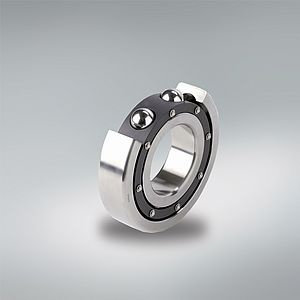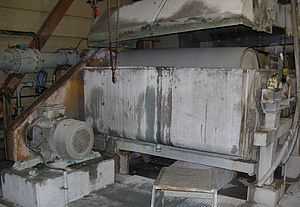An internationally-renowned Italian snack food company is benefiting from annual savings of €192,600 on production and maintenance costs, since using an Asset Improvement Programme.
The Italian snack food company faced a persistent problem of failure of fixed tail drum conveyor bearings operating in a damp environment. The company operates 6 production lines, and across all of these was experiencing the same problem: bearing life of just six months due to the adverse environment. With production costs running at €3,500/hr, this situation was clearly unsustainable and NSK was called in to analyse the application and suggest an alternative.
After investigating the application and they proposed replacing the existing double-row ball bearings with the Molded-Oil Series of spherical roller bearings. Molded-Oil bearings reduce the total cost of ownership of food processing machinery by removing the downtime associated with regular bearing replacements, and through maintenance cost savings as a result of longer re-lubrication intervals. They provide these benefits with a special solid lubricant that greatly improves the performance of machinery and equipment in environments exposed to high humidity and contamination.
A highly effective lubricant, Molded-Oil offers more than twice the operating life of grease lubrication in water contaminated environments. Moreover, the technology means that operating environments are kept free of grease – very important in food applications - and there is no need for refilling of lubricant, as Molded-Oil provides a continuous supply of lubricating oil.
Since fitting of the spherical roller bearings, bearing life has increased to 15 months (the original Molded-Oil bearings are still operating – with more life to come). As a consequence, maintenance intervals have been reduced, leading to major savings in production downtime costs, calculated at a considerable €192,600 annually.
In addition to this annual cost reduction, the snack food manufacturer is also benefiting because a costly regreasing operation has now been eliminated. This represents an additional major cost saving in respects of labour and downtime, and a solution to environmental protection.



















